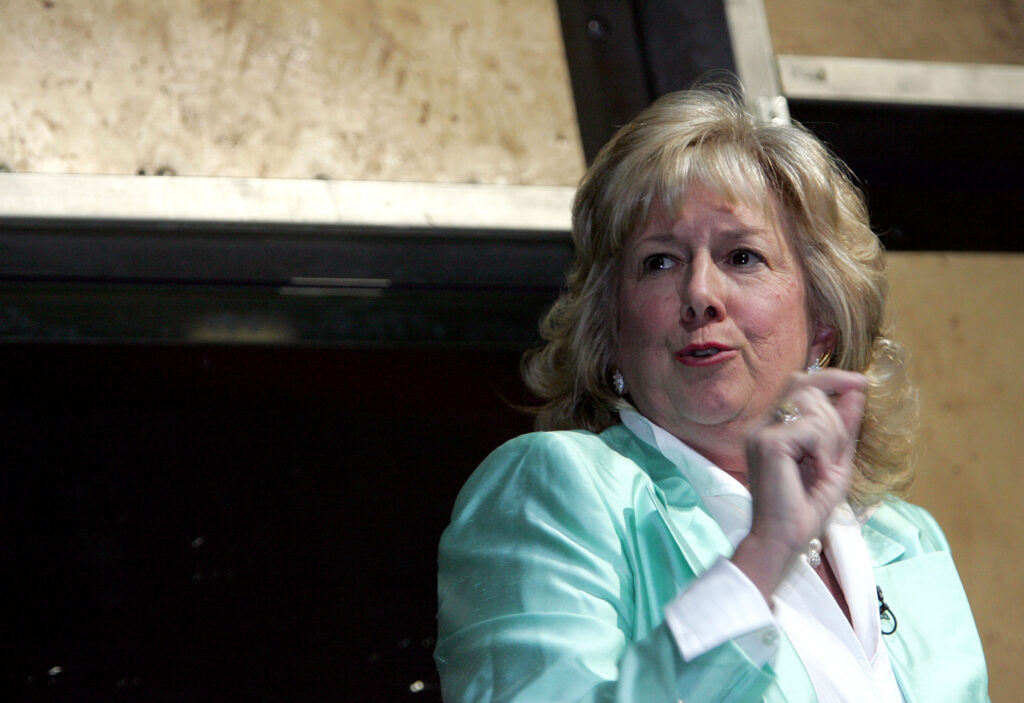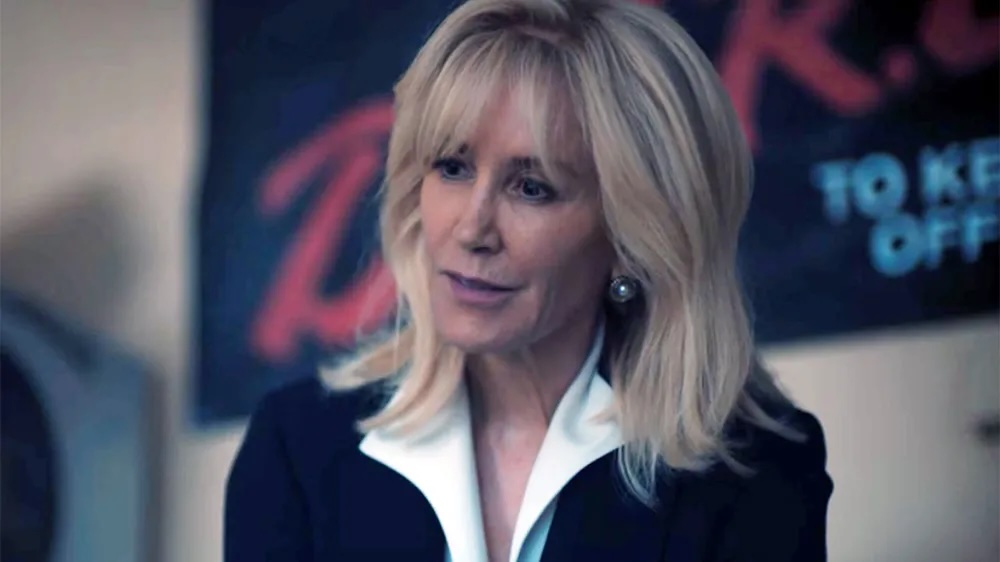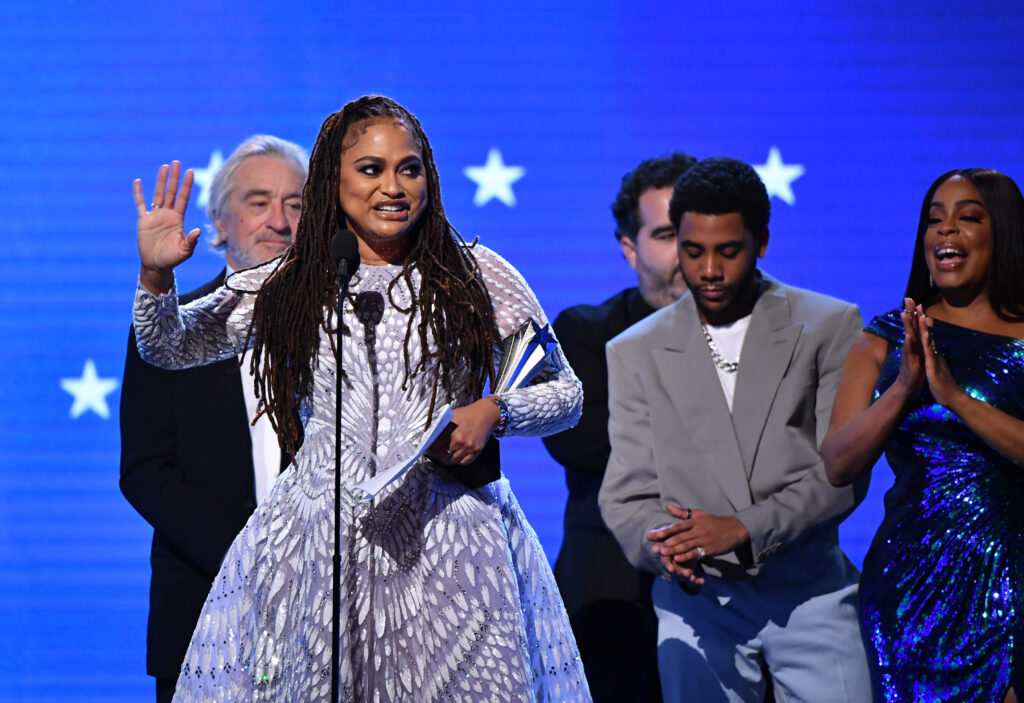Star Prosecutor’s Blockbuster Defamation Lawsuit Against Netflix and a Hollywood Favorite, Ava DuVernay, Over ‘Central Park Five’ Film Could Change TV
‘No one wants to write bad things about Netflix and Ava DuVernay, and people are afraid,’ plaintiff Linda Fairstein’s attorney says.

A blockbuster defamation case against Netflix and an Academy Award-nominated director, Ava DuVernay, which could affect the entire docudrama genre, is heading to trial. Why haven’t you heard more about it?
Probably because it involves a celebrated Black director who’s a favorite of Hollywood’s left, the potentially third-rail issue of race in the criminal justice system, and the notorious “Central Park Five” case.
New York City’s onetime top sex crimes prosecutor turned best-selling novelist, Linda Fairstein, is suing the streaming giant, Ms. DuVernay, and another writer and producer of the docudrama series “When They See Us” for its alleged “false and defamatory” portrayal of her in the apprehension and prosecution of the “Central Park Five.”

“No one wants to write bad things about Netflix and Ava DuVernay, and people are afraid,” Ms. Fairstein’s attorney, Andrew Miltenberg, tells the Sun. “The entire docudrama genre is at stake.”
The four-episode series, which had its debut on Netflix in 2019 and is available to stream on the site, purports to tell the true story — in dramatized form — of the five Black and Hispanic teenagers who were arrested and convicted of the 1989 rape and assault of a white female jogger in Central Park. All five men’s convictions were vacated in 2002 after another man, a serial rapist named Matias Reyes, confessed to the crime and his DNA matched that found at the scene. The City of New York awarded the “Central Park Five” a $41 million settlement in 2014.
The case has become a national symbol of racial inequities in the criminal justice system and a rallying cry for activists. Ms. DuVernay, who had a five-year, $100 million production deal with Warner Brothers, set out to make a series that told the story from these five men’s points of view and that was an indictment of the criminal justice system. “The story you know is a lie they told you,” promotional materials for the series said.
Ms. Fairstein contends that the story the series tells — and her role in it — is not based in fact, and that Netflix, Ms. DuVernay, and producer Attica Locke intentionally set out to make her “the face” of a racist, white criminal justice system. She points to potentially damaging emails, script notes, and other messages exchanged between defendants, and procured during the lawsuit’s discovery phase, as evidence they intentionally sought to make her the villain. In one such exchange, Ms. DuVernay messages Ms. Locke just before the series drops that Ms. Fairstein is “‘bout to feel it all.”
There is no disclaimer in the series’s opening credits that this is a “fictional dramatization,” as there is in, for example, “The Crown.” Instead, there is a longer statement in the end credits — which Netflix doesn’t show if a person watches episodes back-to-back — that says the series is “inspired by actual events” and “any similarity to the name or to the actual character or history of any person, living or dead, or actual incident is entirely for dramatic purposes and not intended to reflect on any actual character or history.”

The problem is, the series uses Mr. Fairstein’s real name. She is played by a famous actor, Felicity Huffman, and is depicted calling for police to round up all the Black “thugs” in Harlem, pushing for harsh interrogations of underage boys, and altering a crime timeline to nail the suspects, among other unfavorable actions.
Ms. Fairstein argues that she actually played a limited role in the investigation and prosecution of the Central Park jogger case and that the Netflix film attributes actions and responsibilities to her that, in truth, she did not take or have. Ms. Fairstein “lacked the authority to instruct N.Y.P.D. members on interrogation techniques or to direct them to round up suspects, and that she never did so,” the presiding judge for the United States District Court for the Southern District of New York, Kevin Castel, writes in his decision to allow the lawsuit to proceed to trial.
The series creates dialogue, scenes, and roles for Ms. Fairstein in the apprehension, interrogation, and investigation of the “Central Park Five” that Ms. Fairstein and Judge Castel say are not factually accurate, even by the sources the defendants say they consulted in writing the script.

Most defamation cases involving famous people do not reach trial — they are either dismissed at an earlier stage or settled. The Johnny Depp-Amber Heard trial is a notable exception, and the testimony was explosive. The other recent big defamation suit, brought by Dominion Voting Systems against Fox News, was settled for nearly $800 million the day the trial — and potentially damning testimony from the network’s stars — was set to start. Unlike the lawsuit against Ms. DuVerney, the Fox-Dominion case received enormous press attention that cast Fox in a negative light.
In the Netflix case, Judge Castel denied the defendants’ motion to dismiss the case in September and sent it to trial. Mr. Mintenberg says the trial will likely start late next summer or early fall.
“The actual-malice standard sets a high bar for a public figure asserting a claim of defamation,” Judge Castel writes. Yet, he adds, “a reasonable trier of fact could find by clear and convincing evidence that defendants acted with reckless disregard to the truth or falsity of Fairstein’s portrayal.”

“In some instances, the research attributes these actions to other individuals by name,” Judge Castel writes. “The choice to attribute this conduct to a real life person is not immunized because the defendants intended the depiction to be a critique of the criminal justice system.”
Judge Castel cites Ms. Duvernay’s own description of the series: “Ms. Fairstein represents the criminal justice system, and the criminal justice system is the villain in the series,” Ms. DuVernay said. He also quotes notes from the writers’ room and emails from Netflix executives advising the writers to heighten the unlikability of Ms. Fairstein: “Linda Fairstein is the clear villain in the beginning,” one reads.
A trial could shed a rare light on some of the secretive workings of Netflix, which famously keeps its ratings and internal processes private. The partially redacted court filings already offer some glimpse.
Ms. Duvernay, Ms. Locke, and Netflix counter that they have a constitutionally protected right to “tell the story from the perspective of five innocent men,” and that dramas by their nature require the artistic license to compress time, create dialogue, and even composite characters. This is what makes it a drama — or docudrama — not a documentary.
“Fairsein does not own history,” the defendants’ brief arguing to dismiss the case says. “The question is not whether the scenes and dialogue were literally true and provable with precise sourcing for each line. The question is what the filmmakers subjectively believed to be true based on their sources.”
Neither Netflix nor Ms. DuVernay’s production company returned the Sun’s request for comment.
Ms. Fairstein suffered real harms as a result of the series being released in 2019. She was dropped by her literary agency and publisher, after she had created a successful second career as a crime novelist. She was forced to resign from several nonprofit boards. A #CancelLindaFairstein campaign was started on social media. Ms. Locke tweeted negative comments about her to the Mystery Writers of America, which was planning to honor Ms. Fairstein for her writing and then rescinded the award.
Ms. Fairstein’s reputation as a pioneering female prosecutor and legal powerhouse — the model on which Mariska Hargitay’s character on Law & Order SVU is reportedly based — was gravely tarnished by the series, Mr. Miltenberg says. She stopped getting invitations to appear as a legal expert on cable news.
“Her legacy in law enforcement as a prosecutor has been destroyed,” Mr. Miltenberg says. “Our intention is to expose the very ugly underbelly of Hollywood profiteering at the expense of real people’s lives.”
Judge Castel warns in his opinion, “This defamation action is not a platform to relitigate the underlying case.” Yet that will likely be a large part of the suit and discussion around it.
It is taboo to question the innocence of the “Central Park Five,” yet it is still contested. An official 2003 report on the jogger case, commissioned by the New York City police commissioner, found that the five men whose convictions were vacated “most likely” participated in the beating and rape of the jogger but “did not dispute the legal necessity of setting aside the convictions of the five defendants based on the new DNA evidence that Reyes had raped the jogger.” Those who believe in the men’s innocence argue this report is from the NYPD — the organization that investigated and apprehended the men — and is therefore biased. They also say the racial language and public frenzy around catching the attackers biased the jury.
In interviews since the “Central Park Five” convictions were vacated, Ms. Fairstein has been unapologetic about her office’s conduct, though she did not disagree with the convictions being vacated due to Reyes’s confession. In a 2014 Don Imus radio interview, she said, “I think these men were participants in the attack on the jogger” and called the NYPD investigation “one of the most brilliant.” Defendants will likely use these statements as an indictment of Ms. Fairstein’s character.
“The most Fairstein can do is reargue the underlying Central Park Five jogger case and civil suit, criticize the writers’ sources, and advance her view of these contested and highly controversial events. None of this has any bearing on actual malice,” the defendants argue.
Mr. Miltenberg, though, says the defendants’ malice is in plain view. “That’s the problem with this case. It’s not about the ‘Central Park Five,’ it’s about a movie or a Netflix series that completely ignored facts and fabricated statements and events of a real living person,” Mr. Mintenberg says. “They willfully ignored facts because they wanted a composite white law enforcement character to villainize and turn into the embodiment of the white law enforcement system.”
The docudrama genre has become increasingly popular in recent years. It follows a wave of audience interest in documentaries and true crime. Think about “The Crown” or “The Dropout” or “I, Tonya,” just to name a few recent hits. “When They See Us” garnered renewed attention after the killing of George Floyd and the 2020 “racial reckoning.” What is the fine line between artistic license used in an unfavorable depiction versus actionable defamation? A victory for Ms. Fairstein could make streaming services and production companies hesitant to take on these projects.
Dramas based on real events are Ms. DuVernay’s bread and butter. She made a name for herself as the director of “Selma” and a movie centered on criminal justice and race, “13TH.” She just finished a $100 million, multi-year contract with Warner Brothers. Her latest film, “Origin,” is having its premiere now. It is based on historical events around race and power dynamics. This is her niche: She’s a Hollywood power player, and it’s paying her well. In 2020, the year after “When They See Us” had its premiere, she bought a $9.8 million mansion in Los Angeles’ trendy Los Feliz neighborhood.
“History is dangerous, and it can be used as a weapon,” Ms. DuVernay told the Hollywood Reporter at a screening for her new movie last week. “It can be used as propaganda. It can be used as a tool of liberation — it just depends who’s got control of it.”
In Hollywood, Ms. DuVernay seems to be holding those reins of control. In a court of law, the reins of control are not so clear cut — not so black and white, if you will.
Netflix has made no attempts to settle, Mr. Miltenberg said. A Netflix representative told CNN in a statement that it will “continue to vigorously defend ‘When They See Us’ and the incredible team behind the series, and we’re confident that we’ll prevail against Ms. Fairstein’s few remaining claims.”

